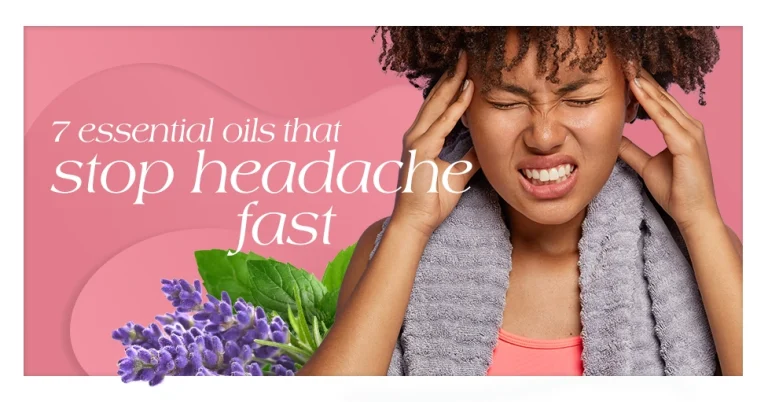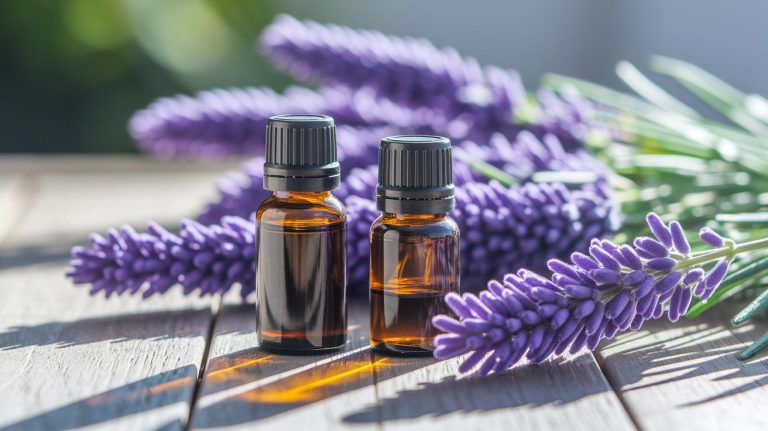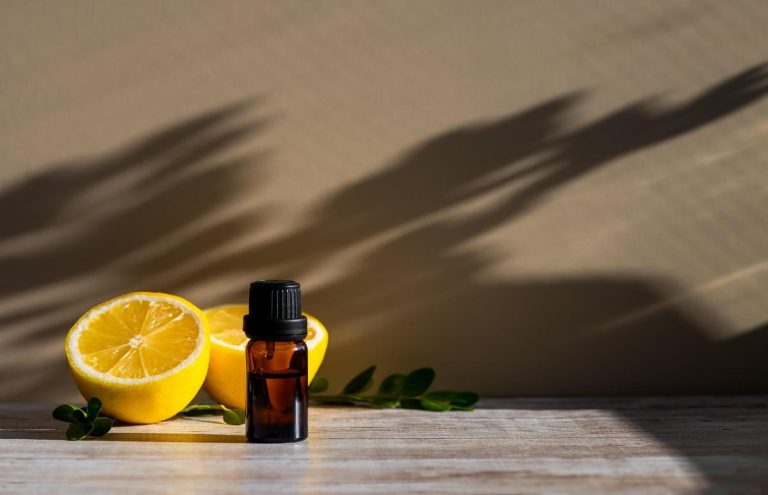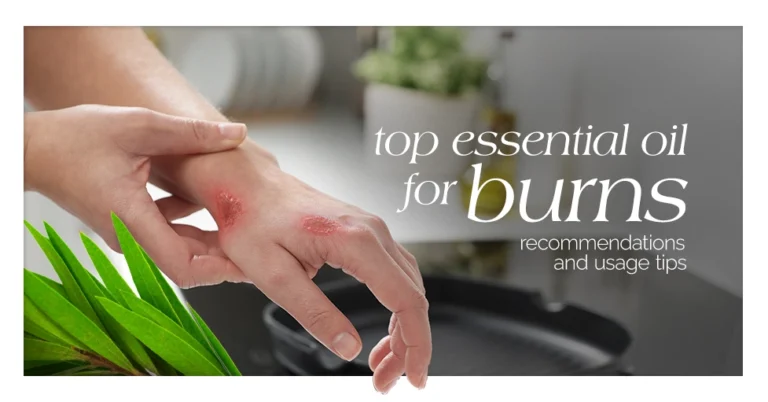Benefits of Essential Oils for Hair Growth and Health
Ever wondered why the hair of some people is so lush and shiny? Could it be a secret hair care routine or an expensive hair treatment? The answer might be simpler and more natural than you think – essential oils and hair. These natural extracts have been used for centuries to promote healthy hair and scalp. But how do they work, and which ones should you use?
Essential Oils Can Benefit Your Hair
Quick Takes
- Essential oils can promote hair growth, strengthen strands, reduce dandruff, and encourage the growth of thicker and healthier hair.1
- Diluting with carrier oil is an effective way to use essential oils for hair care.
- Take precautions when using essential oils to avoid skin irritation or allergic reactions.
The Power of Essential Oils for Hair Growth
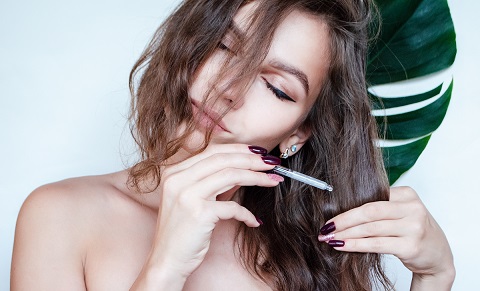
From ancient Egypt to modern beauty salons, essential oils have long been revered for their therapeutic benefits. But did you know these potent plant extracts can be a game-changer for your hair health? Here are some ways essential oils can promote luscious locks.
- Stimulating hair follicles
- Improving scalp health
- Reducing dandruff and dryness
- Promoting hair growth
- Strengthening hair strands
- Adding shine and luster
Scientific research is now catching up with traditional wisdom, providing evidence to support the hair growth promoting effects of essential oils. For instance, a 2021 study found that pumpkin seed oil, rich in antioxidants and fatty acids, was nearly as effective as minoxidil foam, a popular hair growth treatment, in promoting hair growth.
You Can Actively Effect the Quality of Your Hair
Did you know that the state of our locks is influenced by a myriad of factors? Here’s a rundown:
- Product Choices: The hair products we use, such as shampoos, conditioners, and styling gels, especially those laden with synthetic chemicals, can significantly impact our hair’s health and appearance.
- Dietary Habits: What we consume plays a crucial role in our hair’s vitality. A balanced diet rich in essential nutrients can lead to lustrous, healthy hair.
- Lifestyle Practices: Activities like swimming in chlorinated pools or frequent use of hair dryers can take a toll on our hair’s health.
- Water Quality: The quality of the water we use for showering matters. Using a shower filter can help remove harmful substances like fluoride, chlorine, and iron oxides, thereby protecting our hair.
- Genetic Factors: Our genetic makeup, inherited from our parents, can determine our hair’s texture, color, and growth patterns.
- Sleep Patterns: The quality and quantity of our sleep can affect our hair’s health. Adequate rest promotes overall body health, including that of our hair.
- Stress Management: Our ability to handle stress effectively can influence our hair’s condition. Chronic stress can lead to conditions like telogen effluvium, which causes hair shedding.
- Environmental Factors: Exposure to environmental elements like sun, wind, and pollution can damage our hair over time.
- Hormonal Balance: Hormonal changes or imbalances can also affect our hair’s health and growth. Conditions like thyroid imbalances or hormonal changes during pregnancy can lead to hair loss or changes in hair texture.
- Scalp Health: The health of our scalp plays a significant role in our hair’s health. A healthy scalp free of dandruff or other conditions provides a conducive environment for hair growth.
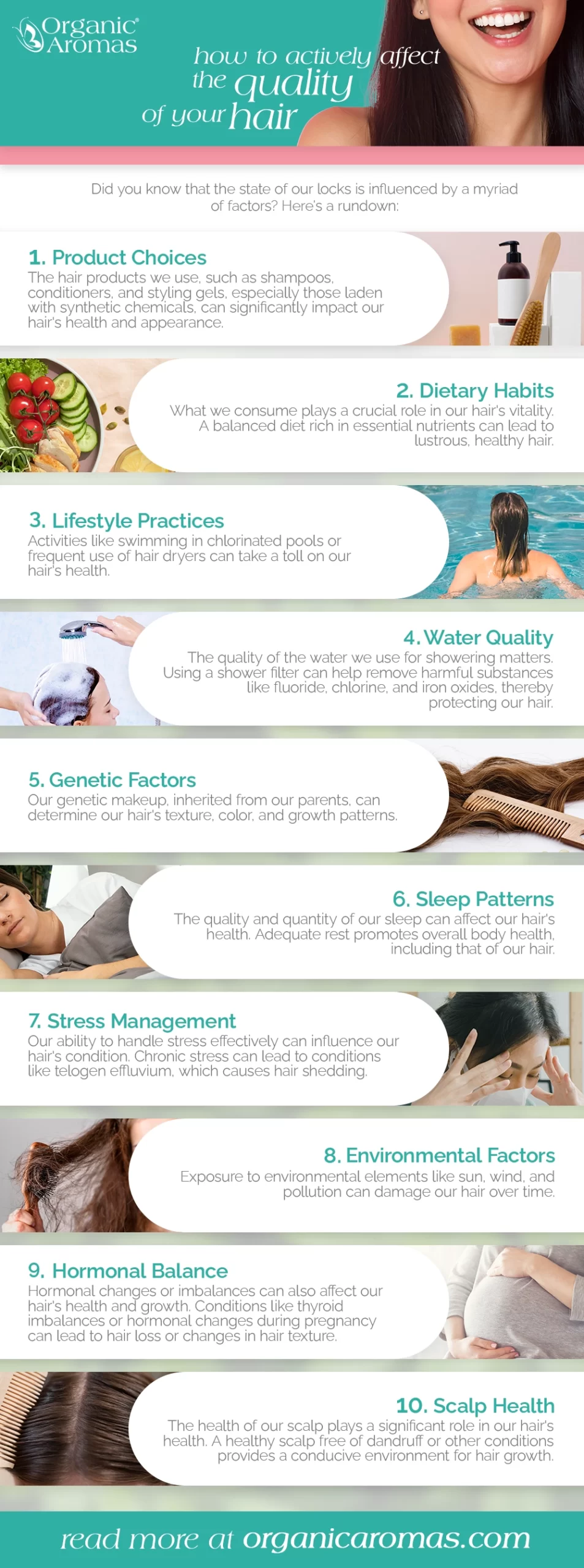
| Essential Oil | Chemical Constituents | Benefits |
|---|---|---|
| Rosemary | 1,8-Cineole, Camphor | Stimulates hair growth |
| Peppermint | Menthol, Menthone | Increases follicle depth and overall growth |
| Lavender | Linalool, Linalyl acetate | Generates growth of cells, reduces stress |
| Cedarwood | Cedrol, Thujopsene | Promotes blood circulation, reduces dandruff |
| Thyme | Thymol, Carvacrol | Promotes hair growth, prevents hair loss |
The Best Essential Oils for Hair
Lavender Oil
When it comes to hair growth, lavender oil is a favorite among many. It has several benefits for the hair and scalp, including:
- Antimicrobial properties that can help soothe the scalp and prevent infections
- Moisturizing properties that can help combat dry skin and hair
- Stress-reducing properties that can help prevent stress-induced hair loss
- A pleasant scent that can provide a calming effect
Using lavender oil regularly can promote healthy hair growth and improve the overall condition of your hair and scalp.
DIY Recipe
To harness the power of lavender oil for hair growth, follow these steps:
- Mix several drops of lavender oil with three tablespoons of carrier oil, such as olive oil or melted coconut oil.
- Apply the mixture directly to the scalp.
- Leave the mixture on for 10 minutes.
- Wash it out and shampoo your hair as usual.
This process can be repeated several times per week for best results.
Peppermint Oil
Peppermint essential oil, with its refreshing scent and cool sensation, is another potent ally in the quest for healthy hair. Menthol, the primary component of peppermint oil, is known to have a positive effect on hair health 2. It increases blood and nutrient circulation to the scalp, making it easier for nutrients to reach hair follicles, thus resulting in better growth and prevention of hair loss.
To incorporate peppermint oil into your hair care routine, you can add it to your shampoo or conditioner, or apply it directly to your scalp. Just be sure to leave it on for approximately five minutes before rinsing it out. The powerful anti-inflammatory, antimicrobial, and antifungal properties of peppermint oil make it a versatile addition to any hair care regimen.
Rosemary Oil
Rosemary oil is another potent essential oil known for its hair growth benefits. It has anti-inflammatory properties, can block the effects of DHT on hair follicles, and can improve blood flow in the scalp, all of which may lead to thicker, stronger, and healthier hair.
Apply six to eight drops of rosemary oil in your scalp and to the tips of your hair strands. Massage your scalp for three to five minutes. This helps to stimulate hair growth. This process can stimulate blood flow and aid in the development of new cells to create fuller and thicker hair.
Tea Tree Oil
Last but certainly not least on our list of power-packed essential oils for hair growth is tea tree oil. Known for its antibacterial properties, tea tree oil can facilitate the unplugging of hair follicles and potentially enhance hair growth.
More DIY Recipes
To benefit from tea tree oil’s hair growth properties, you can follow these steps:
- Combine three drops of tea tree oil with two tablespoons of a carrier oil.
- Apply the mixture to your scalp and hair.
- Leave it on for 15 minutes.
- Rinse it off thoroughly.
Not only can tea tree oil promote hair growth, but it’s also regularly employed in anti-dandruff treatment products, making it a versatile addition to any hair care routine.
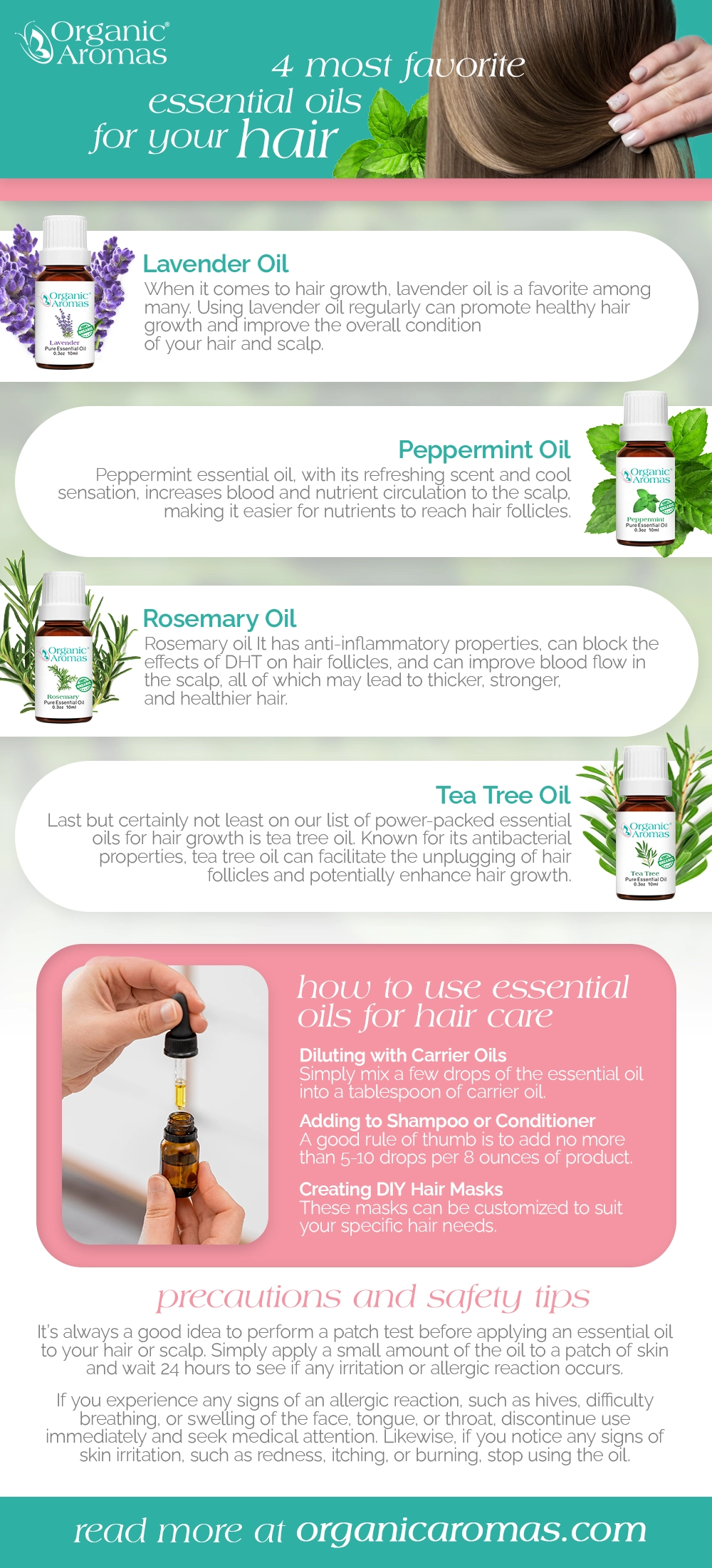
Essential Oils for Scalp Health and Dandruff Control
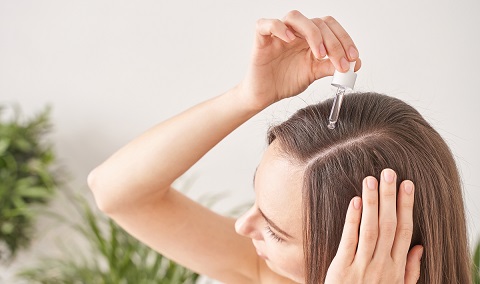
While promoting hair growth is a significant benefit, essential oils also offer other advantages for hair health. One such area is scalp health and dandruff control. A healthy scalp is the foundation of healthy hair, and essential oils can help maintain a healthy scalp and control dandruff.
From soothing inflammation to fighting off fungal infections, essential oils can provide a myriad of benefits for your scalp. Some examples include:
- Lemongrass oil, known for its powerful antiviral and antifungal properties, is beneficial for treating various scalp issues.
- Lavender oil is useful in treating dandruff.
- Cedarwood oil is also effective in treating dandruff.
Cedarwood Oil
Cedarwood essential oil is a potent antidote for a range of scalp issues. It promotes blood circulation on the scalp, stimulates hair growth, and reduces dandruff and scalp eczema. To harness the power of cedarwood oil, blend it with a carrier oil and massage into the scalp daily.
This process can reduce inflammation, which could potentially cause hair loss. Whether you’re battling dandruff or looking to boost your hair growth, cedarwood oil is a potent tool to have in your hair care arsenal.
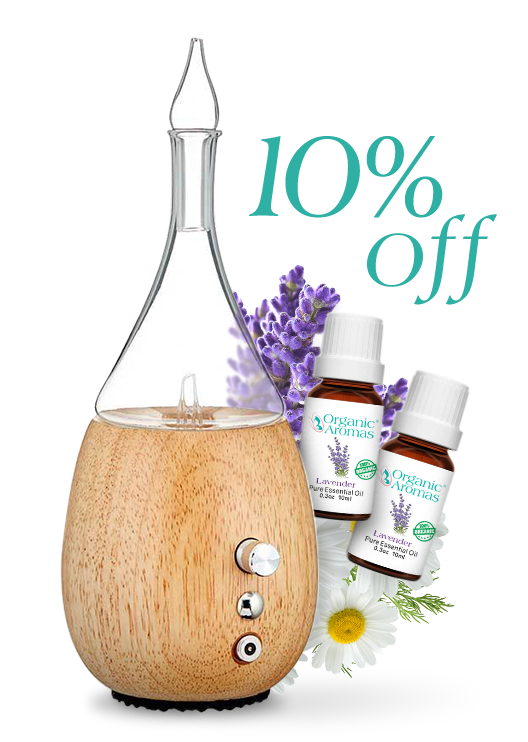
Join Now and Get a Coupon for 10% Off!
Lemongrass Oil
Lemongrass oil isn’t just a flavorful addition to your favorite dishes; it’s also a wonder-worker for your scalp. Its benefits include:
- Antibacterial properties
- Antifungal properties
- Effective treatment for dandruff
- Effective treatment for scalp infections
To incorporate lemongrass oil into your hair care routine, follow these steps:
- Add a few drops of lemongrass oil to your shampoo or conditioner.
- Massage the mixture into your scalp daily.
- Regular use can help maintain a clean, healthy scalp, which is the foundation for lush, healthy hair.
Thyme Oil
Thyme oil, with its antimicrobial, anti-inflammatory, and antioxidant properties, can provide several benefits for scalp and hair health, including:
- Improving scalp health
- Stimulating hair growth
- Preventing hair loss
- Treating dry scalp
- Eliminating dandruff
To use thyme oil effectively, combine it with a carrier oil and apply it directly to your scalp or add it to your shampoo or conditioner. However, it’s essential to use thyme oil in moderation and avoid contact with broken skin.
Essential Oils for Hair Strength and Shine
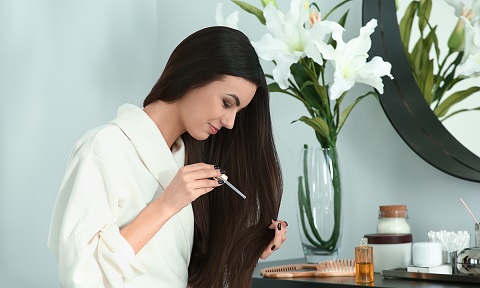
Besides promoting hair growth and maintaining scalp health, essential oils can also enhance the texture, strength, and shine of your hair. Certain oils, such as sweet basil, ylang-ylang, and clary sage, can provide increased volume, natural conditioning, shine, reduced breakage, and stimulate sebum production.
Whether you’re looking to bring life back to dull hair or strengthen fragile tresses, essential oils can provide a natural solution. Let’s explore some of these oils and their benefits.
Ylang-Ylang Oil
Ylang-Ylang oil, derived from the flowers of the Cananga tree, is a potent ally for hair health. It offers the following benefits:
- Stimulates blood circulation
- Promotes beneficial scalp conditions
- Nourishes the scalp
- Especially beneficial for dry scalps
Applying ylang-ylang oil can improve your hair texture, reduce breakage and can be used with warm oil or found in shampoo/conditioner. So, if you’re struggling with brittle hair, ylang-ylang oil might be the answer you’re looking for.
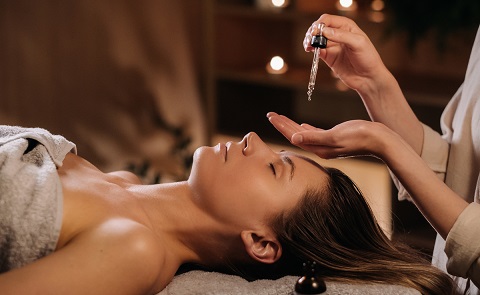
Clary Sage Oil
Clary Sage oil is another essential oil that can do wonders for your hair. It contains linalyl acetate, which has been shown to:
- Promote hair growth
- Improve hair strength
- Help regulate natural oil production on the scalp
- Sustain an even texture
- Fortify hair strands and follicles
- Diminish hair shedding
Mix three drops of clary sage oil to your favorite conditioner or carrier oil. Make sure it’s one tablespoon of the latter. Rinse your product after 2 minutes if you use it daily. This will prevent any residue or buildup of bacteria. Use it once or twice per week. Leave it on for 10 minutes each time.
Geranium Oil
Geranium oil is another gem for hair health. It can balance sebum production, thereby regulating dryness and excess oil. Its moisture-regulating properties can help keep hair hydrated. This in turn prevents breakage, leading to longer and stronger hair.
A 2017 study found that geranium extract had a beneficial impact on the creation of human dermal papilla cells. These cells are essential for the production of hair follicles. This could potentially result in accelerated hair growth and increased hair thickness.
How to Use Essential Oils for Hair Care
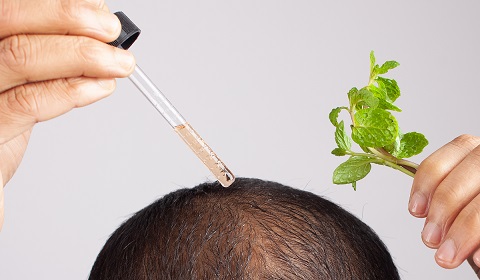
Now that we’ve covered the benefits of essential oils for hair growth, scalp health, and hair strength and shine, let’s discuss how to incorporate these oils into your daily hair care routine. The beauty of essential oils is their versatility. They can be diluted with carrier oils, added to your shampoo or conditioner, or combined with other natural ingredients to create homemade hair masks.
Remember, essential oils are potent, and they should always be used in their diluted form. It’s recommended to mix one or more types of oils into your shampoo or conditioner, or create a DIY treatment by mixing a few drops of essential oil into a carrier oil.
Diluting with Carrier Oils
Diluting essential oils with carrier oils is an important first step in using essential oils for hair care. Carrier oils like coconut or olive oil are ideal for this purpose. These oils not only dilute the essential oil but also provide additional benefits for your hair. For instance, coconut oil is known for its moisturizing properties, and olive oil can help strengthen and add shine to your hair.
To dilute essential oils, simply mix a few drops of the essential oil into a tablespoon of carrier oil. The resulting mixture is safe to apply directly to your scalp and hair.
Adding to Shampoo or Conditioner
Another simple and convenient way to use essential oils for hair care is by adding a few drops to your shampoo or conditioner. This method allows you to reap the benefits of essential oils every time you wash your hair.
Just remember, when adding essential oils to your shampoo or conditioner, it’s important to use them sparingly. A good rule of thumb is to add no more than 5-10 drops per 8 ounces of product.
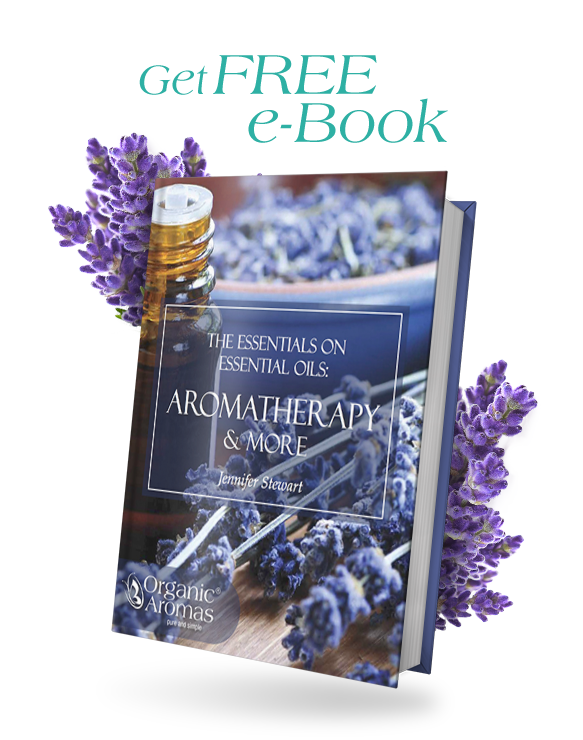
Sign Up to Get Your FREE
e-Book Here…
Creating DIY Hair Masks
Creating DIY hair masks with essential oils is another great way to improve your hair health. These masks can be customized to suit your specific hair needs, whether you’re looking to boost hair growth, improve shine, or nourish your scalp.
To create a DIY hair mask, follow these steps:
- Blend a few drops of essential oil with a carrier oil like coconut or jojoba oil.
- Add in other natural ingredients like honey, avocado, or yogurt.
- Apply the mask to your hair and scalp.
- Leave it on for about 10 minutes.
- Rinse off with warm water.
Precautions and Safety Tips
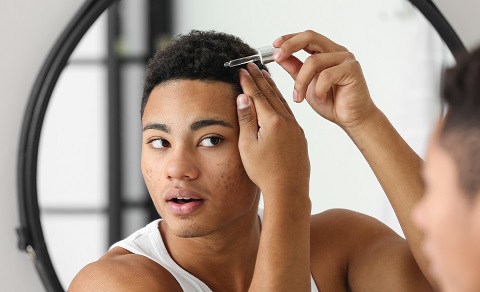
While essential oils offer many benefits for hair health, it’s important to remember that they are potent and should be used with caution. One of the potential risks of using essential oils is skin irritation or allergic reactions. It’s always a good idea to perform a patch test before applying an essential oil to your hair or scalp. Simply apply a small amount of the oil to a patch of skin and wait 24 hours to see if any irritation or allergic reaction occurs.
If you experience any signs of an allergic reaction, such as hives, difficulty breathing, or swelling of the face, tongue, or throat, discontinue use immediately and seek medical attention. Likewise, if you notice any signs of skin irritation, such as redness, itching, or burning, stop using the oil.
It’s also important to always dilute essential oils with a carrier oil before applying them to your hair or scalp. This not only ensures that the oils are safe to use, but also helps to prevent any potential adverse reactions.
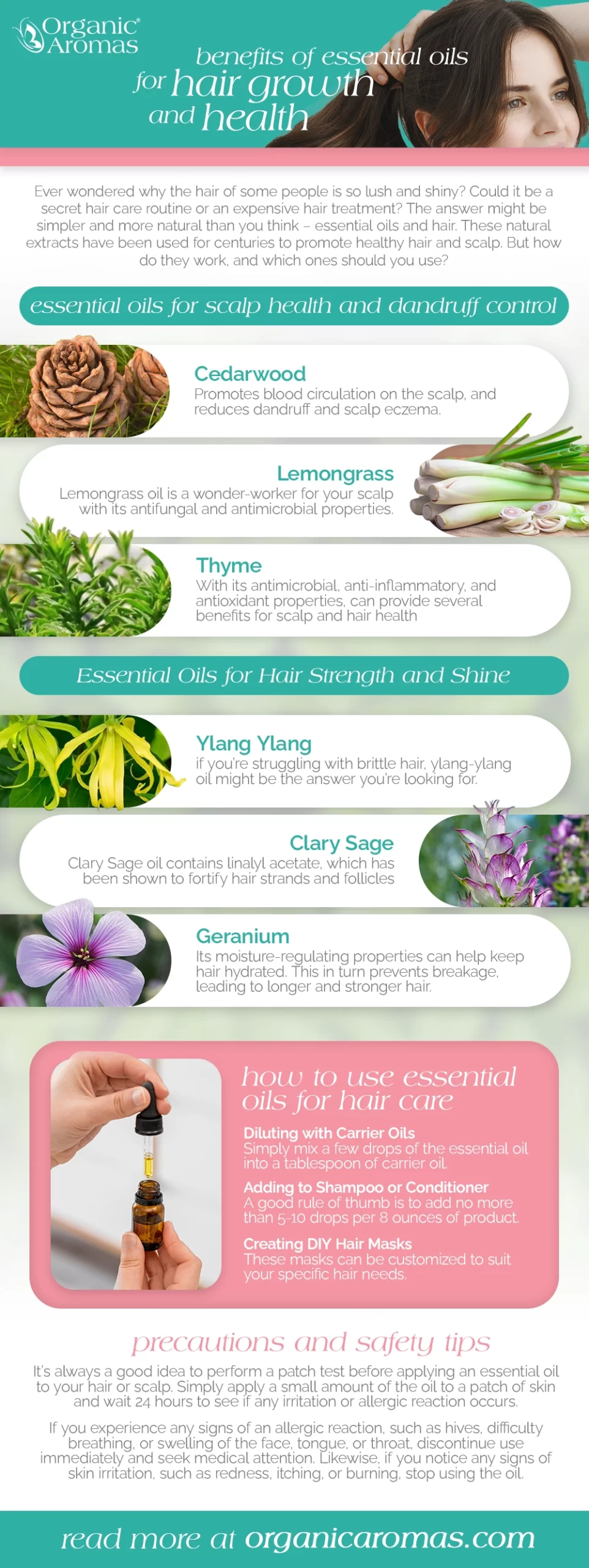
Essential Oils and Hair: The Benefits Are Real
It is well documented that essential oils offer a natural, effective, and versatile solution for promoting hair growth, maintaining scalp health, and improving hair strength and shine. Whether you’re dealing with hair loss, dull hair, or a dry scalp, there’s likely an essential oil that can help. Just remember to always dilute essential oils before applying them to your hair or scalp, and perform a patch test to ensure you don’t have an allergic reaction. So why not give essential oils a try? Your hair might thank you for it.
Frequently Asked Questions
Is it okay to put essential oils in your hair?
It is generally okay to put essential oils in your hair, as long as they are mixed with a carrier oil or base and not applied undiluted. You can apply them directly to the scalp, mix them with a shampoo or conditioner, add a few drops into a mask, or leave them on for up to 30 minutes or overnight.
Essential oils can be beneficial for your hair, as they can help nourish and moisturize the scalp, reduce dandruff, and promote hair growth. However, it is important to use them safely and correctly, as some essentials are essential.
How should I apply essential oils to my hair?
Start by placing a few drops of essential oil onto the fingertips and massaging into the scalp for 10-15 minutes using circular motions. Work your way across the entire scalp, and then gently apply any remaining oil to the ends of the hair.
You can also add the essential oil to your shampoo or conditioner before lathering into the scalp or hair. Additionally, you can mix essential oils with a carrier oil and apply to the scalp to stimulate blood flow.
What essential oils help hair thickness?
Rosemary, lavender, and peppermint essential oils are known to stimulate hair growth and increase hair thickness. Using a combination of these oils can further enhance their beneficial effects.
What essential oils clarify hair?
Peppermint and Tea Tree essential oils are popular choices for clarifying hair, as they have been used for centuries to cleanse and clear.
These oils are known for their antiseptic and antibacterial properties, which help to remove dirt, oil, and product buildup from the scalp and hair. They also help to balance the scalp’s natural oils, leaving hair feeling refreshed.
What are essential oils and how can they benefit hair growth?
Essential oils are natural plant extracts with therapeutic properties that can help stimulate hair follicles and improve scalp health, aiding in hair growth.
- Panahi, Y., Taghizadeh, M., Marzony, E. T., & Sahebkar, A. (2015). Rosemary oil vs minoxidil 2% for the treatment of androgenetic alopecia: a randomized comparative trial. Skinmed, 13(1), 15–21.
- Oh, J. Y., Park, M. A., & Kim, Y. C. (2014). Peppermint Oil Promotes Hair Growth without Toxic Signs. Toxicological Research, 30(4), 297–304.


